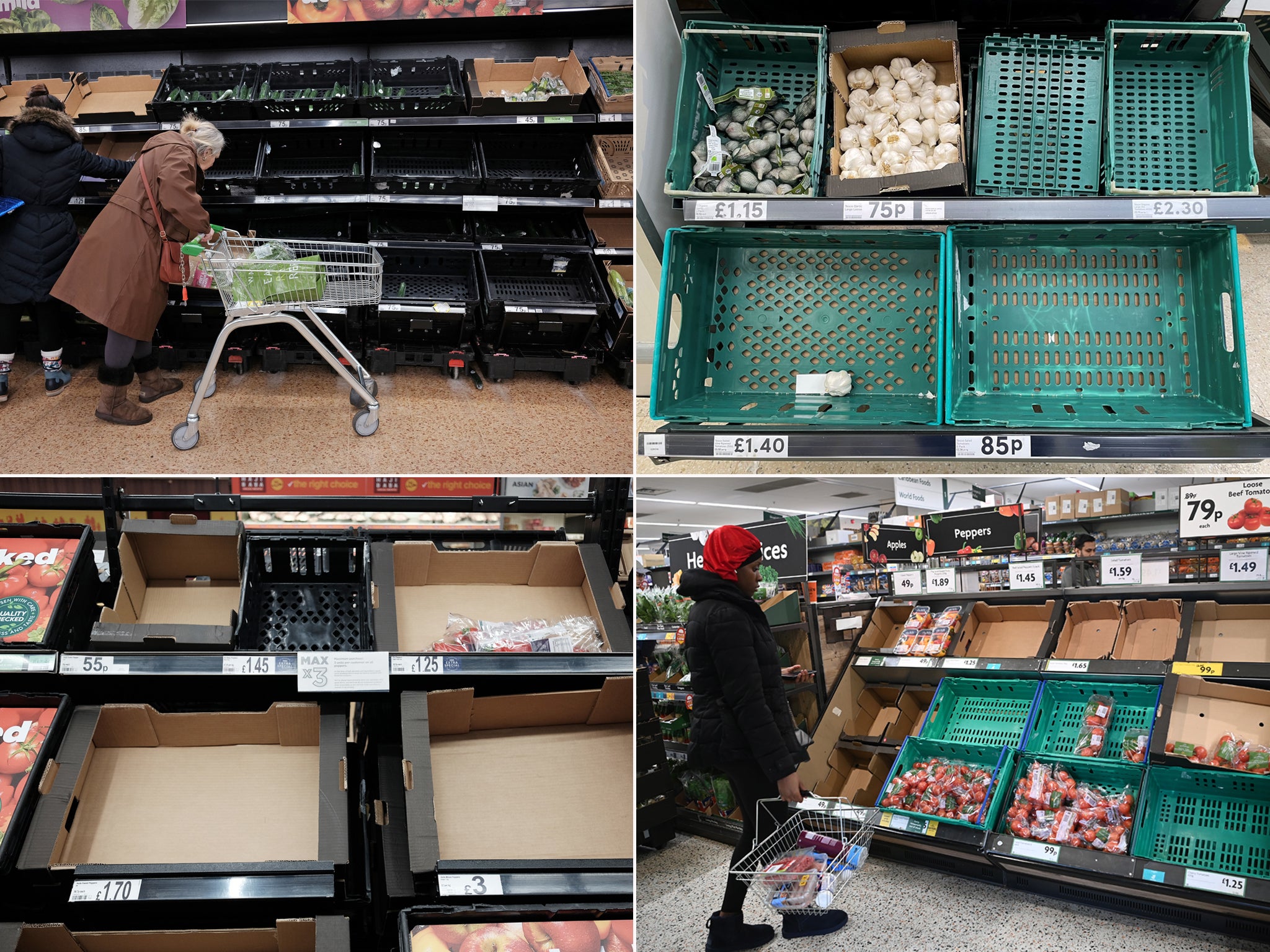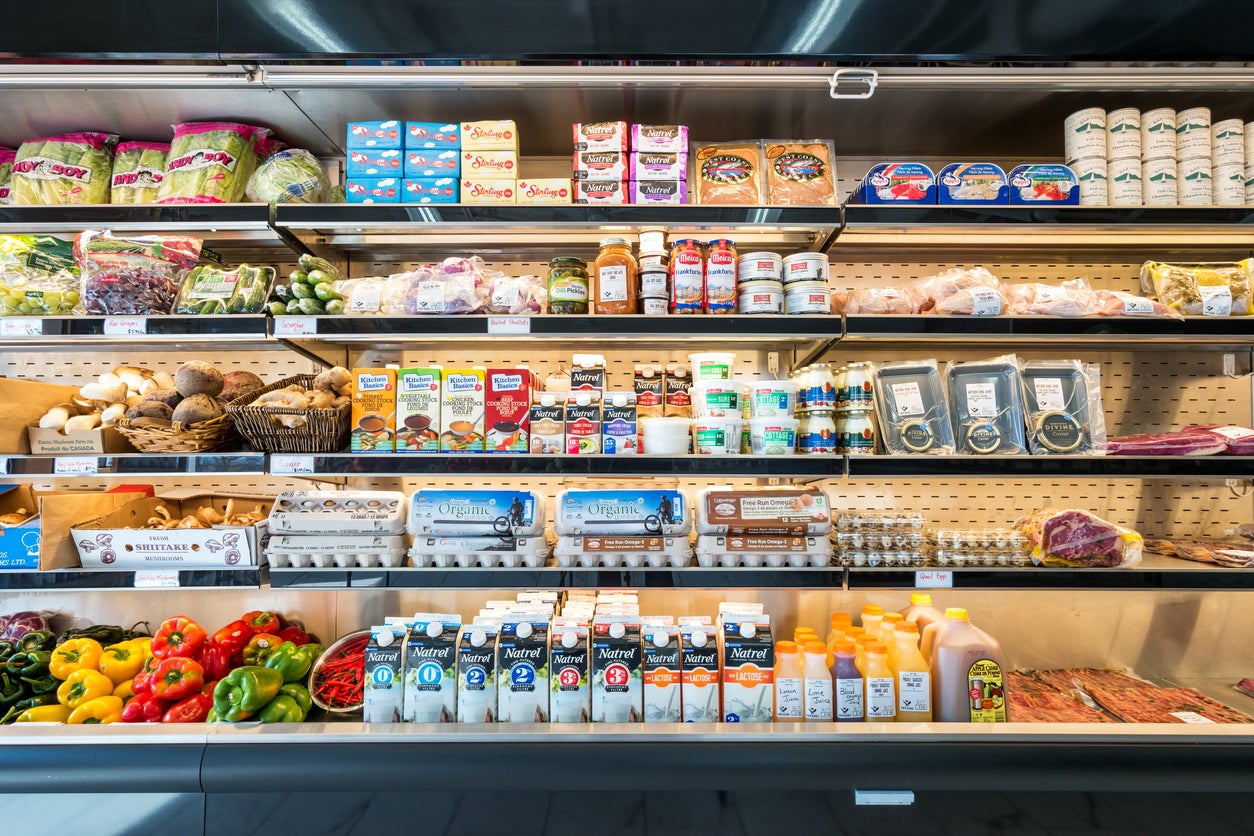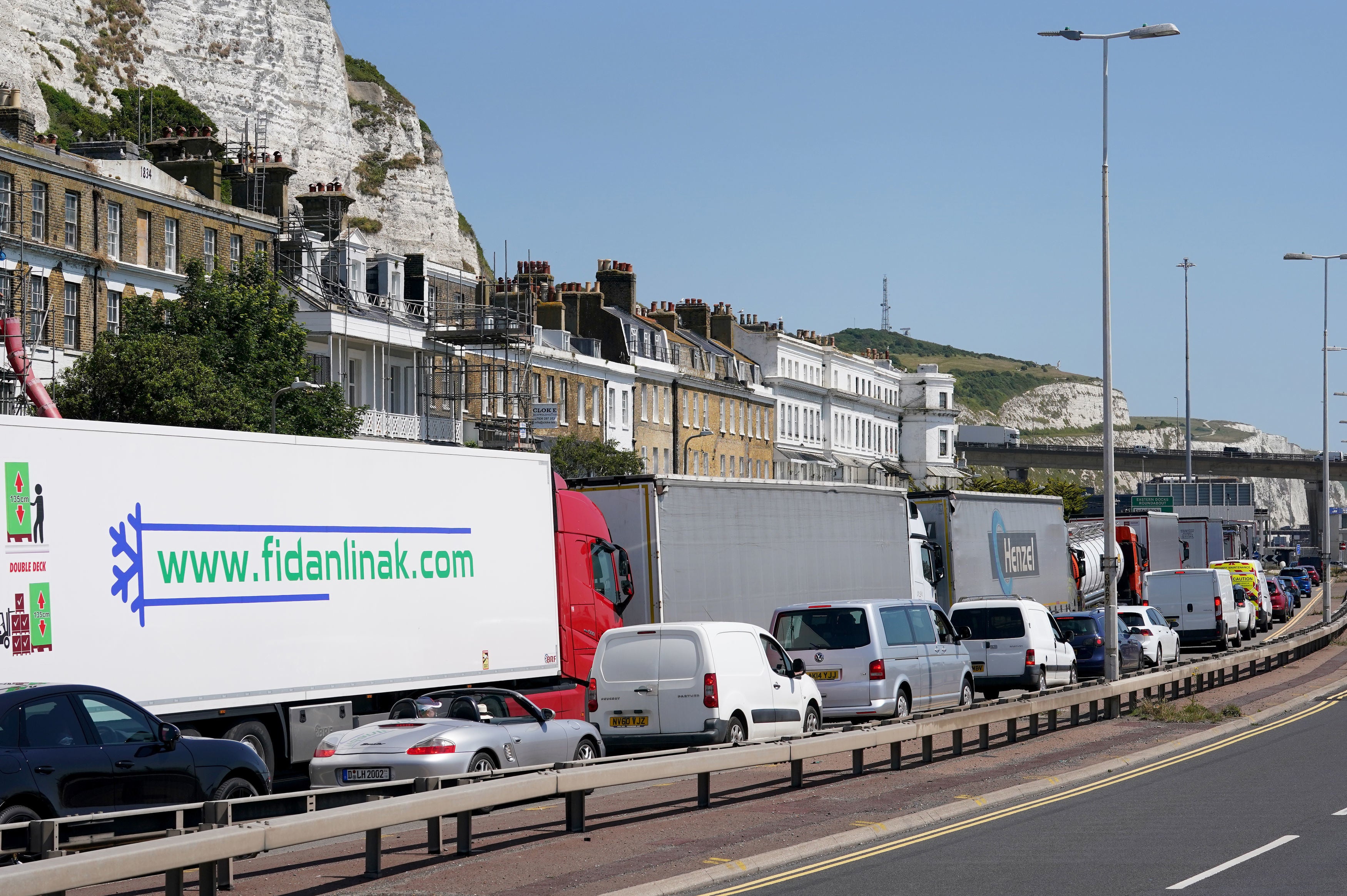Parma hams and Spanish chorizos to disappear from UK shelves due to new Brexit checks, Rishi Sunak warned
Exclusive: Specialist meats and cheeses suppliers could ditch UK altogether, say industry chiefs – amid fresh warning fruit and veg prices set to spike
Your support helps us to tell the story
From reproductive rights to climate change to Big Tech, The Independent is on the ground when the story is developing. Whether it's investigating the financials of Elon Musk's pro-Trump PAC or producing our latest documentary, 'The A Word', which shines a light on the American women fighting for reproductive rights, we know how important it is to parse out the facts from the messaging.
At such a critical moment in US history, we need reporters on the ground. Your donation allows us to keep sending journalists to speak to both sides of the story.
The Independent is trusted by Americans across the entire political spectrum. And unlike many other quality news outlets, we choose not to lock Americans out of our reporting and analysis with paywalls. We believe quality journalism should be available to everyone, paid for by those who can afford it.
Your support makes all the difference.Specialist meats such as Parma hams and Spanish chorizo sausages could begin disappearing from the shelves of UK supermarkets and delis because of costly new Brexit checks, food sector chiefs have told The Independent.
Rishi Sunak’s government has been warned of major supply problems with EU meat and dairy products when extra red tape and inspections are imposed on imports from April.
Some suppliers of specialist products, like French cheeses, will give up on Britain because of the extra expense and “huge hassle” involved in sending goods, say industry bosses.
Food sector leaders are also warning of supply problems with fruit and vegetables – including price spikes and potential shortages – when further controls on fresh produce come into force later in the year.
It comes after the alarm was raised about the damage to imports of plants and flowers, as farming chiefs say new controls pose an “existential threat” to Britain’s horticultural firms.
Mr Sunak has been urged to a new agreement with Brussels on food and agricultural standards to avoid a “major step backwards” in Britain’s supply chains.

Costly new health certificates are required for medium-risk food, animal and plant imports – including meat and dairy – from 31 January, while a brand new system for physical checks on these goods at the UK border comes into force on 30 April.
The Cold Chain Federation – which represents British firms importing chilled and frozen food – says it will cost EU suppliers to have their products inspected by veterinary specialists before sending them across the Channel.
“If you’re a small exporter – a supplier of meats like Parma ham, salami or chorizo – the extra cost per consignment is likely to be hundreds of pounds,” said the group’s executive director Tom Southall.
“There is a risk some EU businesses decide not to bother [with the UK] because they just don’t want to foot the extra costs,” he added. “So the UK consumer might not have so much choice in future.”
The British Meat Processors Association (BMPA) are also warning that the variety of speciality goods on the shelves in the UK could dry up after physical checks begin in April.

Delis, food markets and restaurants will struggle to stock the same variety of artisanal goods, the BMPA warned, as British importers’ trade links with smaller European suppliers dry up.
“The big fear is that smaller EU firms will find it all too messy and costly,” said Peter Hardwick, the BMPA’s trade policy adviser. “It’s very, very concerning.”
The industry chief also warned of prices going up across major meat products – including Irish beef, French lamb and the bacon and ham imported from Denmark, Germany and the Netherlands – because of 2024’s Brexit red tape wave.
Mr Hardwick added: “This is the impact of Brexit. The new controls are a major step backwards in the way supply chains should work between close neighbours.”
From next week, EU firms will need to pay for veterinary health certification – a new check within their own country – as well as fill out online paperwork to notify the UK the goods are coming.
And from April, there will also be costs to get through the inspection checks at the UK border – though the government is yet to make clear the precise charges.

The Fresh Produce Consortium (FPC) said some EU firms were having to prepare for extra costs of up to £2,000 per lorry if they put different kinds of foodstuffs in the same truck.
The FPC is also furious that the government this week decided to impose new costs on bringing in fruit and vegetables by classifying them as “medium risk”, along with meat and dairy products.
From October, the regular physical inspections will also apply to apples, strawberries, peaches, plums, pears, blueberries and grapes, as well as vegetables such as tomatoes, sweet potatoes and carrots.
Nigel Jenney, chief executive of the FPC, said it was a “severe blow to the industry”, adding: “We’re talking about substantial additional costs. And those increased costs will ultimately be passed on to consumers.”
He echoed the warning that smaller European food firms would give up the UK. “It could well be that some decide not to [export to Britain]. If I was a European exporter, I would have to consider, ‘Is it really worth this huge hassle?’”
Mr Jenny added: “You could see less choice on the shelves in terms of charcuterie meats and specialist cheeses. But it affects everybody in the food industry in terms of costs.”

The warnings come after severe shortages of tomatoes, peppers and other salad vegetables forced Britain’s supermarkets to impose rationing last year – with photos of empty shelves mocked by people living in Europe.
Andrea Rasca, founder of London’s Mercato Metropolitano food markets, said he is worried the new checks will hit the supply of specialist products the hardest. He warned that problems for fresh fruit and veg producers could “negatively impact food prices and the variety of food available”.
He added: “The food and hospitality sectors are struggling at the moment because of Brexit and the cost of living crisis, and the government should be doing more to support them.”

The big wave of post-Brexit border checks on imports was supposed to start in 2023. But Mr Sunak’s government delayed the introduction until 2024 over fears the burden could push up food inflation during the cost of living crisis.
Mr Sunak has refused calls from food sector chiefs to get a new deal with the EU to reduce red tape. Sir Keir Starmer has promised a Labour government will seek a new veterinary agreement with Brussels to align some safety standards, in a bid to ease trade friction.
British flower importers and growers dependent on young plants from the EU – such as soft fruits like strawberries and raspberries – look set to be hit by disruption. The National Farmers’ Union has warned it could hinder next year’s crops, and even put some firms at risk of collapse.
Earlier this month, the Dutch Association of Wholesalers in Floricultural Products said checks should be pushed back again until 2025, warning of problems getting flowers to the UK for Valentine’s Day and Easter.
A spokesperson for the government has said it remains committed to “delivering the most advanced border in the world” after Brexit.
They said: “The controls that the new model introduces play a vital role in keeping the UK safe, protecting our food supply chains and farming sector from damaging disease outbreaks.”
They added: “We are taking a phased approach – including temporarily moving all medium-risk goods from EU, such as fruit and vegetables, to low risk to ensure businesses do not face any unnecessary burdens. We will continue to work closely with businesses across the UK as the controls are implemented.”

Join our commenting forum
Join thought-provoking conversations, follow other Independent readers and see their replies
Comments